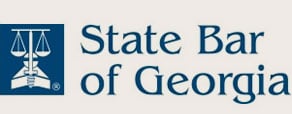Many student loan borrowers are still worried about the heavy burden of debt. Low rates offered by private lenders make it tempting to refinance government student loans, but taking this step can cost you more in the long run.
Loans owned by the Department of Education have relief provisions to help you manage payments. Those provisions are even broader as a result of COVID-19 support packages and have just been extended. As it turns out, you may also have the option to discharge your student loans in bankruptcy.
Why Does Refinancing Look Like a Good Idea?
A private lender might offer lower monthly payments or a rock-bottom interest rate. It may seem to cost less than sticking with your government payment terms. But when you refinance, your loan is no longer owned by the Department of Education. Any government programs designed to help with student debt probably don’t apply. As a result, you can end up in worse shape than if you had kept your loan with the government.
Government Student Loans Have Relief Provisions
There are a number of ways that the government helps student loan borrowers manage their debt. Income-driven repayment plans help you to pay less if you don’t make enough money to cover regular payments. There are also loan forgiveness programs like AmeriCorps and others that wipe out the debt of teachers, members of the military, and those who work in public service.
If you refinance with a private lender, you no longer have government debt -- and you can no longer access these programs.
Coronavirus Relief Is Extended
Last year the federal government stopped federal student loan payments and interest charges in response to the COVID-19 pandemic. That means that people who held federal student loans had the option not to pay. They faced no penalties for nonpayment and, since interest rates were set at zero, the amount owing never increased. Collection activity also stopped. These relief terms were extended twice, most recently by the new Biden administration.
Because of a new executive order signed on Wednesday, student loan forbearance is in effect until the end of September 2021. This only applies to federal loans. If you refinance with a private lender and run into financial difficulty, you have to renegotiate with that lender. The lender is under no obligation to reduce your interest rate or lower payments.
Debt Cancellation May Be Coming
There has also been talk of canceling some federal student loan debt altogether. Proposals have varied among lawmakers, and there is no definitive plan yet in place. However, it is possible $10,000 to $50,000 of federal student loan debt per borrower may be wiped out. If this happens, it will only apply to Department of Education loans – nothing that has been refinanced with an alternative lender.
Bankruptcy May Be An Option
There is another option that may work for student loan borrowers. Contrary to popular belief, it is possible to discharge student loan debt in bankruptcy. It is true that student loan debt is treated differently than other kinds of debt, like credit cards. But it is not completely excluded. That should give some peace of mind to individuals who hold the majority of their debt in private or government student loans.
Currently, borrowers must show “undue hardship” to get loans included in bankruptcy. Historically, this high bar only applied to government loans, but now it applies to any student loans, including those held by private lenders. “Undue hardship” is a hard-to-define term, but that’s one area where a bankruptcy attorney can help. It may be the solution to help many people who face financial challenges to see a way out.
There is a legislative proposal that would update the bankruptcy code to remove sections that refer specifically to student loans. The result would be that student loan debt in bankruptcy would be treated no differently than credit cards, consumer loans, or medical bills. This may or may not come to pass in the near future. But it is just one more reason to seek out expert advice when you are ready to make some changes to support your financial health.
Remember You Have Options
Student loan debt is a reality for many people. Renegotiating government loans with a private lender may or may not be the best way for you to find some relief. Bankruptcy may be a reasonable solution, depending on your circumstances.
You don’t have to figure it all out alone. The easy first step to take is to talk to someone. A bankruptcy attorney represents your interests and can give you informed advice about your financial future. We offer a free consultation, so give us a call today at 229-247-1211 to find out how we can help.





